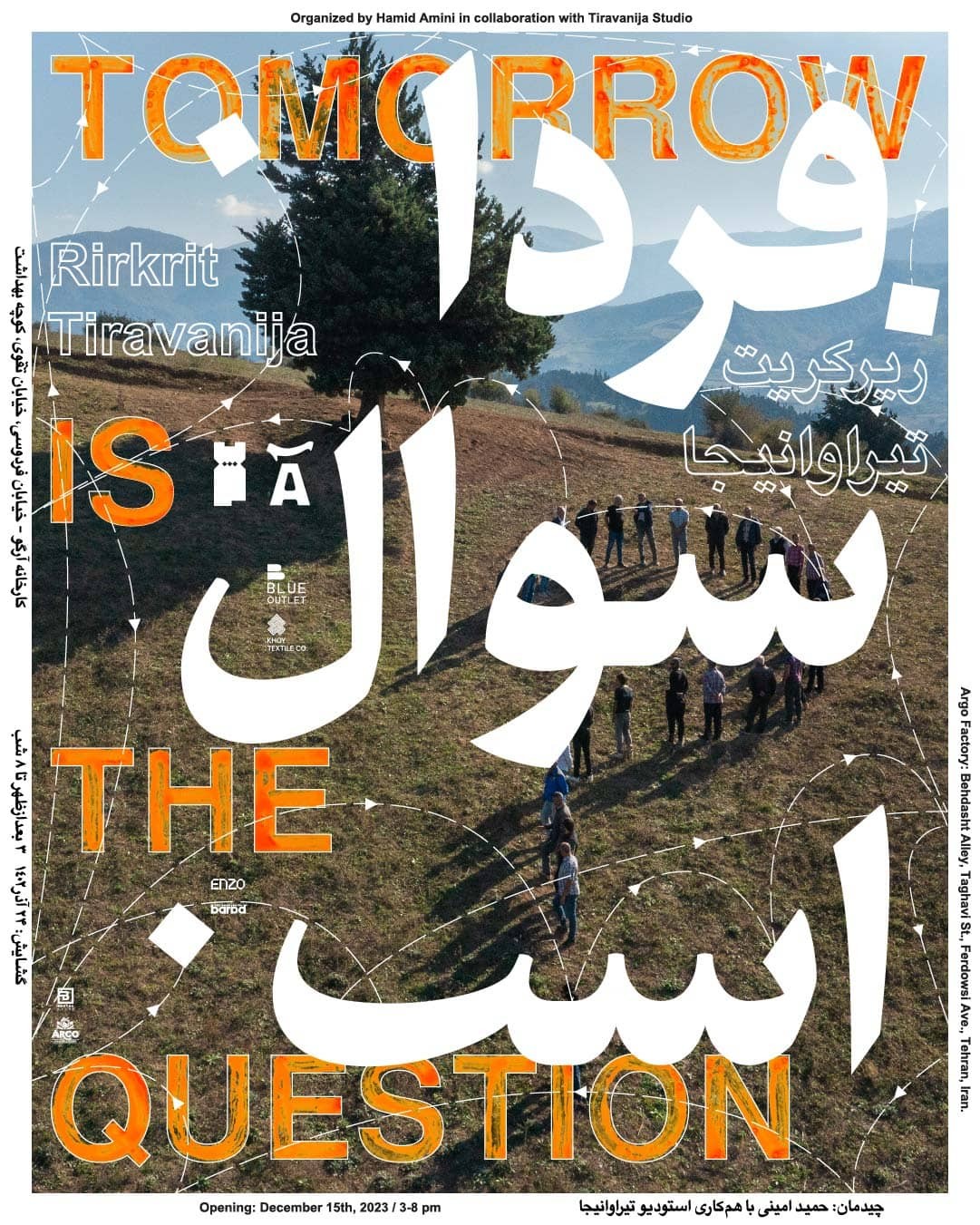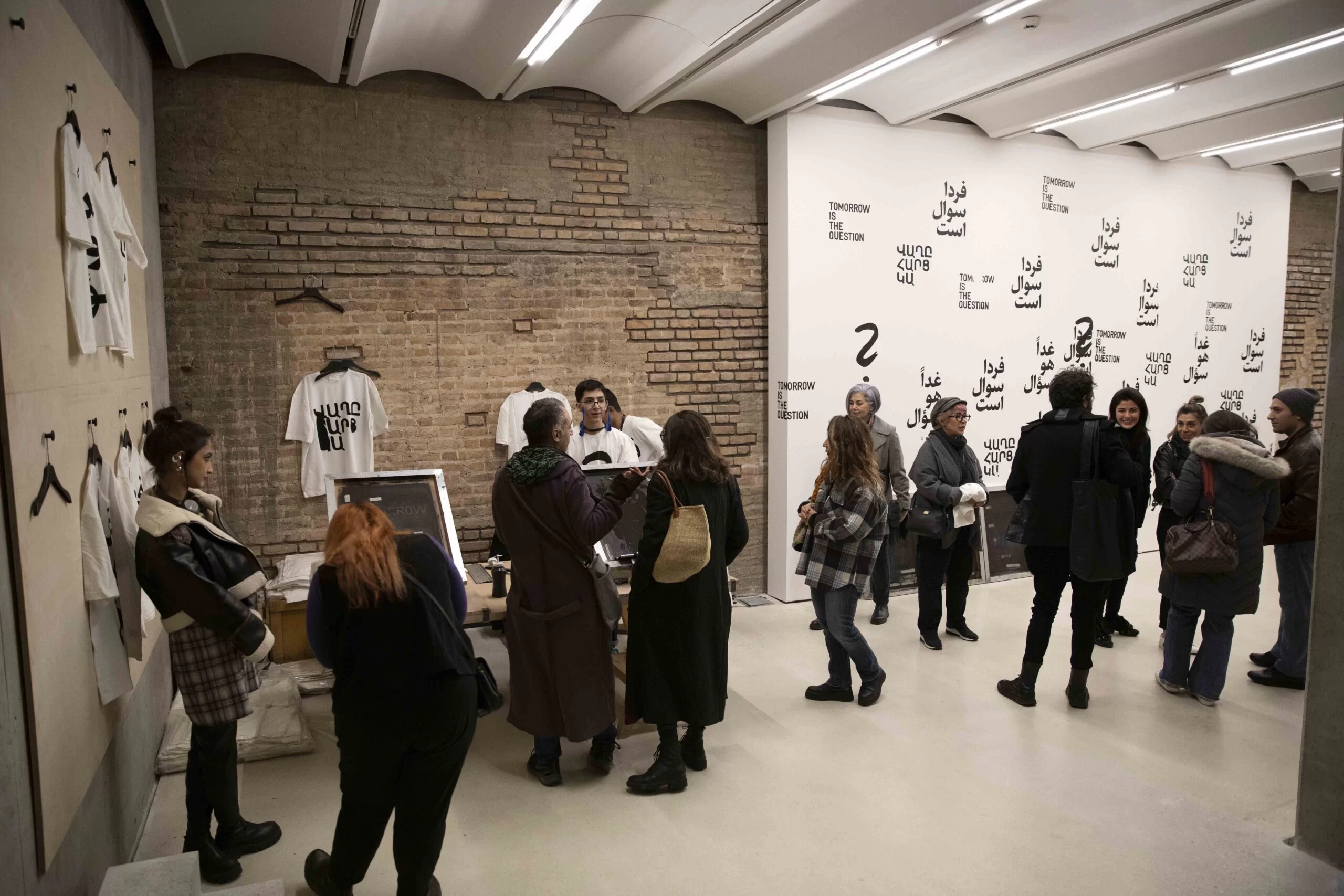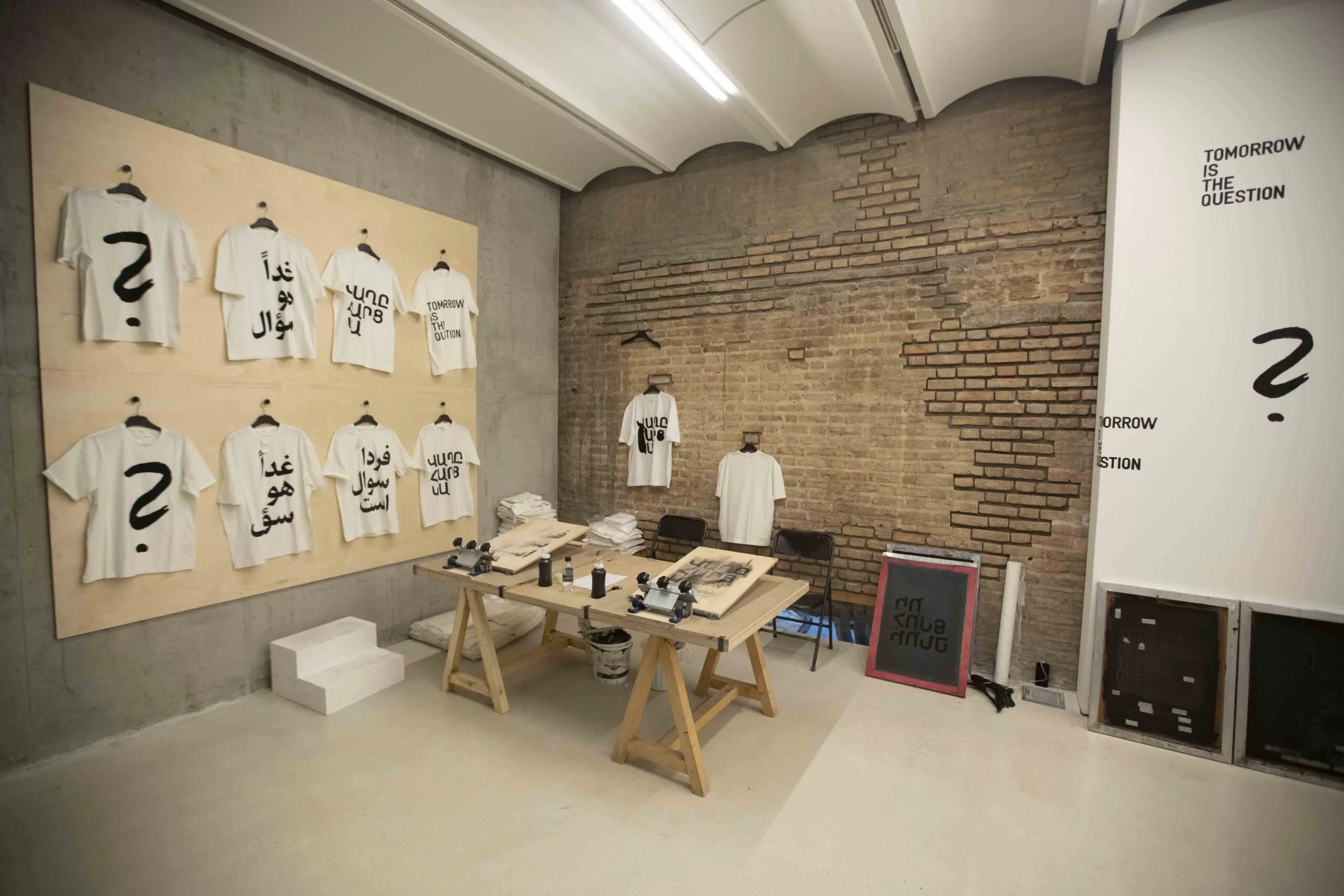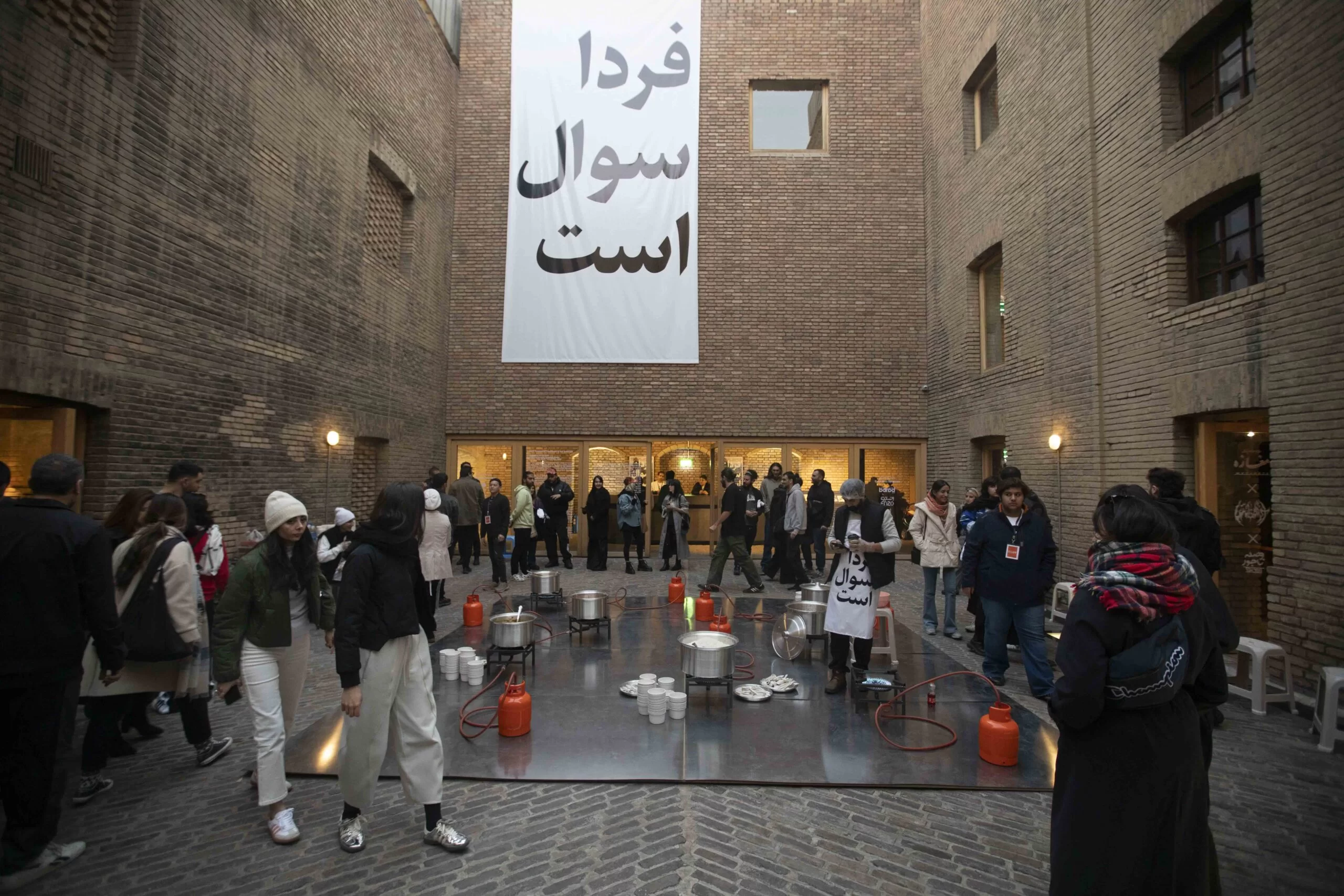Tehran,
No. 6 | Behdasht Alley | Taghavi St. | Ferdousi St. | Tehran | Iran
15 December 2023 - 14 March 2024
Argo Factory presents the first solo exhibition in Iran of works by Thai artist Rirkrit Tiravanija. One of the leading artists working today, Tiravanija is internationally acclaimed for his interactive installations, compelling films, and unconventional approach to making art where people share meals, lounge, read or play music together.
TOMORROW IS THE QUESTION presents works including silkscreened text-based banners, t-shirts, ping-pong tables, flags and for the first time cooking performances mixing Thai and Persian ingredients and dishes. Tiravanija’s pluralistic approach centers on bringing people together to ultimately, as the artist has observed: “Make less things, but more useful relationships.”
The title of the exhibition TOMORROW IS THE QUESTION is borrowed from Ornette Coleman‘s (1930-2015) seminal 1959 free jazz album and encapsulates a linguistic expression that affirms our free will and the potential to change. Tiravanija’s use of slogans asks the viewers to actively rely on their own experiences and ideas in order to make sense of the work. As the artist once noted, “I usually describe my text works as road signs. Like when you drive on a highway, and you drive by a big sign and pick up whatever words are written on it… I always find it interesting how they suddenly show up in the middle of nowhere, totally out of context.”
Since the early 1990’s Tiravanija has made works that invite people to “play” and engage in a game of possibilities. In his work untitled 2012 (Tomorrow is the Question), Tiravanija pays tribute to Slovakian artist Július Koller (1993-2007) by re-staging his conceptual work titled Ping-Pong Society (1970) first exhibited in Bratislava, in former Czechoslovakia, where the artist organized ping-pong tournaments for people to gather and meet. The editions of the tables in this presentation are produced in Persian, Arabic, Armenian (three of many languages spoken in Iran today) and English.
The exhibition in Tehran also showcases Tiravanija’s remake of Koller’s 1978 “anti-happening” Universal Futurological Question Mark (U.F.O), for which the artist had children perform a question mark in a field. In Tehran’s presentation the action was performed around the tree depicted in Abbas Kiarostami’s film (Where Is the Friend’s House?, 1987). The documentation of this performance is the source for the wallpaper throughout the exhibition.
TOMORROW IS THE QUESTION presents works including silkscreened text-based banners, t-shirts, ping-pong tables, flags and for the first time cooking performances mixing Thai and Persian ingredients and dishes. Tiravanija’s pluralistic approach centers on bringing people together to ultimately, as the artist has observed: “Make less things, but more useful relationships.”
The title of the exhibition TOMORROW IS THE QUESTION is borrowed from Ornette Coleman‘s (1930-2015) seminal 1959 free jazz album and encapsulates a linguistic expression that affirms our free will and the potential to change. Tiravanija’s use of slogans asks the viewers to actively rely on their own experiences and ideas in order to make sense of the work. As the artist once noted, “I usually describe my text works as road signs. Like when you drive on a highway, and you drive by a big sign and pick up whatever words are written on it… I always find it interesting how they suddenly show up in the middle of nowhere, totally out of context.”
Since the early 1990’s Tiravanija has made works that invite people to “play” and engage in a game of possibilities. In his work untitled 2012 (Tomorrow is the Question), Tiravanija pays tribute to Slovakian artist Július Koller (1993-2007) by re-staging his conceptual work titled Ping-Pong Society (1970) first exhibited in Bratislava, in former Czechoslovakia, where the artist organized ping-pong tournaments for people to gather and meet. The editions of the tables in this presentation are produced in Persian, Arabic, Armenian (three of many languages spoken in Iran today) and English.
The exhibition in Tehran also showcases Tiravanija’s remake of Koller’s 1978 “anti-happening” Universal Futurological Question Mark (U.F.O), for which the artist had children perform a question mark in a field. In Tehran’s presentation the action was performed around the tree depicted in Abbas Kiarostami’s film (Where Is the Friend’s House?, 1987). The documentation of this performance is the source for the wallpaper throughout the exhibition.



